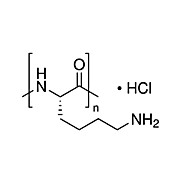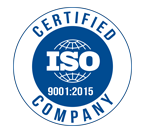Amino Acids, MP Biomedicals, 500 mg
MP Biomedicals
MP Biomedicals is a worldwide corporation manufacturing and distributing systems, kits and reagents for the life science research, medical device, biopharma manufacturing and diagnostics markets. Our extensive portfolio and custom services deliver the dependability that research and industrial communities rely on to worry less and discover more. From small scale research to large scale manufacturing, MP Biomedicals has been advancing life science projects for over 50 years.
-
POLY-L-LYSINE HYDROCHLORIDE, 500 mg
MP BiomedicalsPoly-L-lysine is a nonspecific attachment factor for cells useful in promoting cell adhesion to solid substrates.
-
Poly-L-Lysine Hydrobromide
MP BiomedicalsPoly-L-lysine is a positively charged amino acid polymer. Poly-lysine binds to DNA, red cell membrane and any negatively charged protein. It is typically used as a coating substrate for culture dishes, slides, etc. It enhances electrostatic interaction between negatively charged ions of the cell…
-
D-Biotin
MP BiomedicalsD-Biotin is a growth factor present in small amounts in every living cell. It is involved in naturally occurring carboxylation reactions. It occurs mainly bound to proteins or polypeptides. It is more abundant in the liver, kidney, pancreas, yeast and milk. Biotin levels are higher in cancerous…
-
D-Biotin
MP BiomedicalsD-Biotin is a growth factor present in small amounts in every living cell. Involved in carboxylation reactions Occurs mainly bound to proteins or polypeptides Abundant in the liver, kideny, pancreas, yeast, and milk Levels are higher in cancerous tumors than in normal tissues …
-
Poly-D-Lysine Hydrobromide from Synthetic
MP BiomedicalsPoly-lysine is a polycation which binds to DNA, red cell membrane and any negatively charged protein. Molecular weight has been determined by Viscosity as well as by HPLC. It is typically used as a coating substrate for culture dishes, slides, etc. It enhances electrostatic interaction…
-
3,3,5-Triiodo-L-Thyronine Sodium Salt
MP BiomedicalsAmino acid found in human plasma and thyroid gland, similar to thyroxine. T3 is a thyroid hormone that increases rates of proteins synthesis, stimulates the breakdown of cholesterol, and effects embryonic development. In cell culture, T3 regulates cell differentiation and protein expression.









